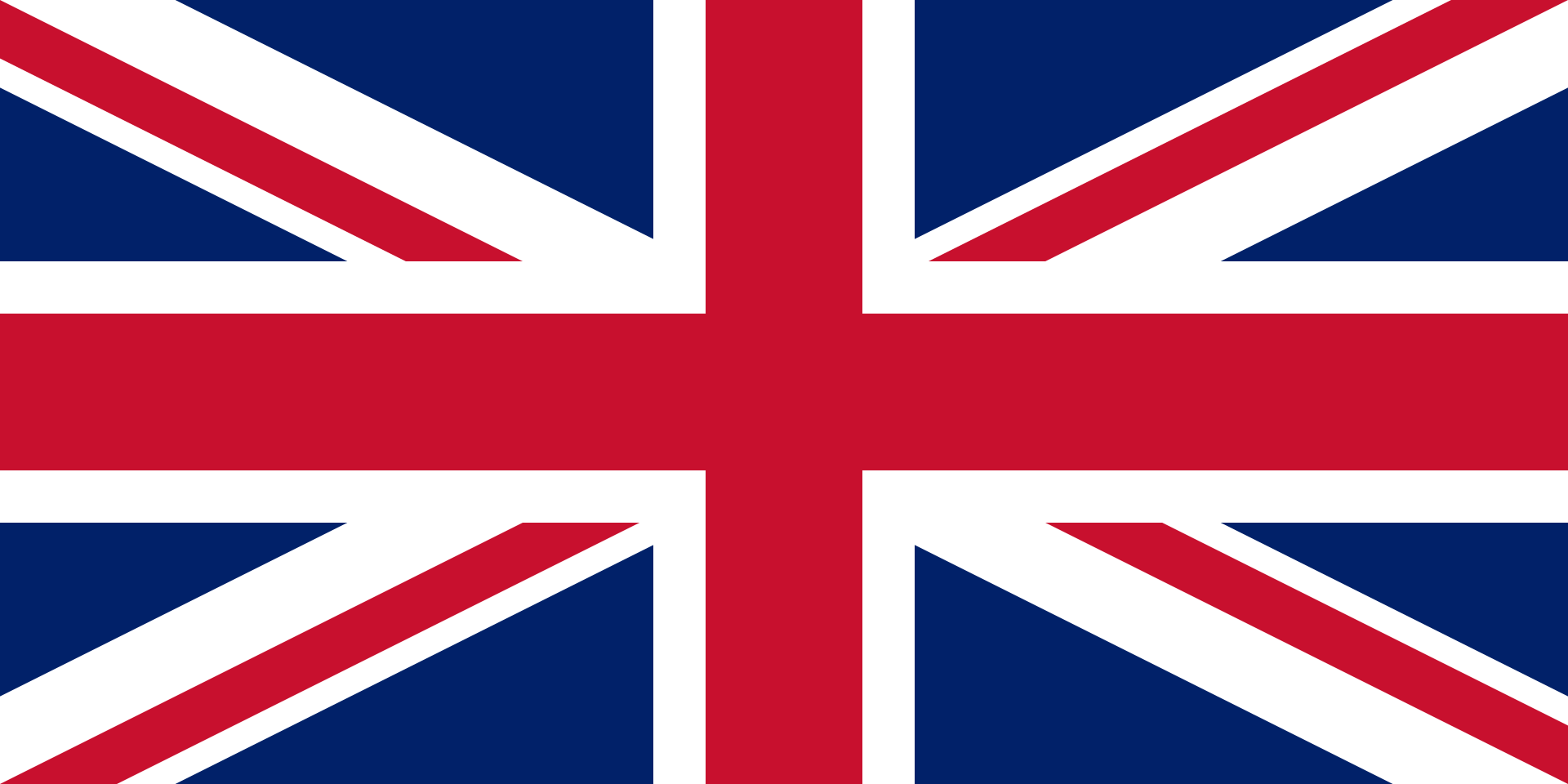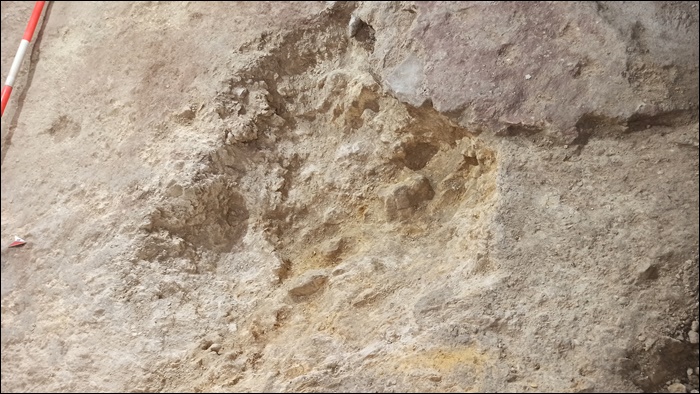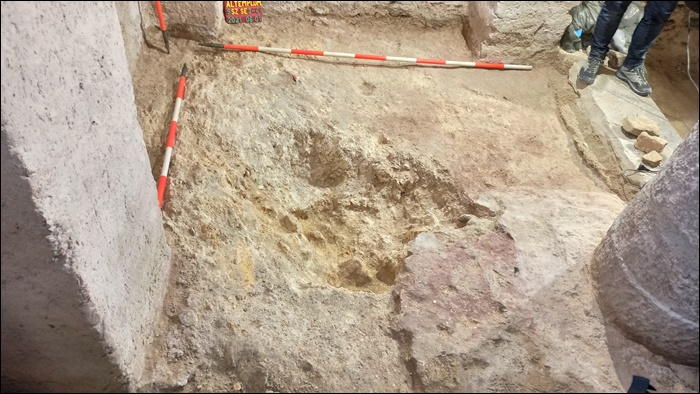 Remains of the 11th-century floor
Remains of the 11th-century floor
Az altemplom délkeleti részén nagyobb felületen vöröses színű padló maradványa került elő. A közvetlenül a sziklára öntött meszes padló színét a pillérekhez és részben a falakhoz is használt, a Balaton környékén kedvelt vörös homokkő adja. Ennek finomra őrölt porát keverték a padlót alkotó habarcsszerű anyagba, és felső, kopó részét ez alkotja. Ez egyrészt ellenállóbb volt a sérüléseknek, másrészt a színe esztétikailag is hozzáadott a tér megjelenéséhez.


Remains of the 11th-century floor
In the south-eastern part of the church, a large area of reddish floor remains were found. The distinct color of the calcareous floor, cast directly on the rock, came from the red sandstone used for the pillars and partly for the walls, a popular building material around Lake Balaton. Its finely ground powder was mixed with the mortar-like material that makes up the floor and forms the upper, abrasive part. This was both more resistant to damage and its color contributed to the aesthetic appearance of the space.